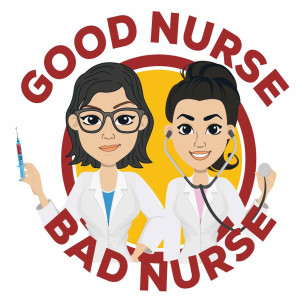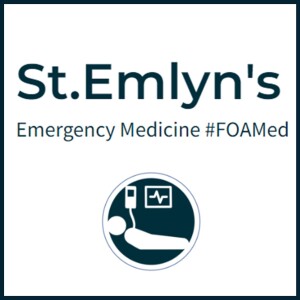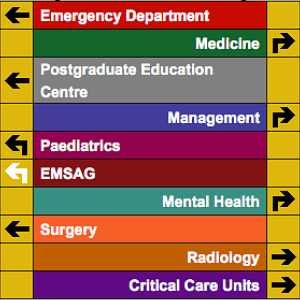Navigating a Mental Health Crisis in Healthcare: A Guide to Recovery
Healthcare professionals, particularly those working in critical care and emergency medicine, often face intense situations that test their emotional and mental resilience. While most of the time, we manage to cope with the challenges, there are rare moments that catch us completely off guard, leaving us feeling utterly broken. This guide explores what to do when work breaks you—a situation that is seldom discussed but is profoundly important.
Understanding the Crisis PointIt's crucial to distinguish between the routine stressors of healthcare work and a true mental health crisis. The latter is not just a rough day or a series of challenging weeks. Instead, it's a once-in-a-career event that completely shakes your confidence and leaves you questioning your ability to continue in your role. These moments can be triggered by traumatic patient cases, critical errors, or cumulative stress that finally overwhelms you.
When such a crisis occurs, it’s important to recognize that what you're experiencing goes beyond normal stress—it’s a mental health crisis. Symptoms may include tremors, uncontrollable crying, sleeplessness, and a sense of detachment. These are signs that your mental health is under severe strain, and they should be taken seriously.
Preparing for a Crisis Before It HappensOne of the most valuable steps you can take is to prepare for the possibility of a mental health crisis before it happens. Just as we plan for emergencies in our professional roles, we should also have a plan in place for our mental well-being.
1. Build a Support Network: Identify a few trusted individuals—whether colleagues, friends, or family—who can be your go-to support in times of crisis. Share with them the kinds of situations that might overwhelm you and how they can help if the time comes.
2. Establish a Routine: Develop a daily routine that includes exercise, healthy eating, and regular sleep. Routine can serve as a stabilizing force during a crisis, providing a sense of normalcy when everything else feels chaotic.
3. Seek Professional Help: It’s wise to establish a relationship with a therapist or counsellor before a crisis hits so you have someone to turn to when you need it. If therapy isn’t an option, know how to access support through your GP or other services.
4. Practice Self-Care: Identify activities that help you relax and de-stress. Whether it’s meditation, reading, or spending time with loved ones, incorporate these into your routine. These activities can become particularly crucial during a crisis.
What to Do During a CrisisWhen you find yourself in the midst of a mental health crisis, your judgment may be impaired, making it difficult to make decisions or know what to do next. Here’s how to navigate those critical moments:
1. Reach Out for Support: Even though your instinct may be to withdraw, it’s essential to reach out to someone in your support network. Connection is key to navigating a crisis. Tell them what’s happened and how you’re feeling, even if it feels incredibly difficult to do so.
2. Stick to Your Routine: Maintain your daily routine as much as possible, even if it feels challenging. Simple actions like getting up at the same time, eating regular meals, and exercising can help you regain a sense of control.
3. Avoid Self-Medication: The temptation to numb your feelings with alcohol, drugs, or other substances can be strong during a crisis. However, these can exacerbate the situation. If you feel the need for medication, consult with a healthcare professional instead of self-medicating.
4. Seek Professional Help: If you’re struggling to cope, don’t hesitate to seek professional assistance. Talking to a professional, whether through your GP, a therapist, or a crisis hotline, can provide the validation and support you need.
The Path to RecoveryOnce the immediate crisis has passed, the journey to recovery begins. This process is often slow and requires patience, self-compassion, and continued support.
1. Allow Yourself Time: Recovery from a work-related mental health crisis takes time, often longer than expected. Be patient with yourself and understand that healing is a gradual process that may take months or even years.
2. Maintain Your Routine: Continue the routine that helped you during the crisis. Regular exercise, healthy eating, and sufficient sleep are the foundations of good mental health and will support your recovery.
3. Reconnect with Your Purpose: Reflect on why you chose your profession and what you love about your job. Reconnecting with these motivations can help you find meaning and purpose again, even after a traumatic experience.
4. Set Small Goals: During your recovery, set small, achievable goals rather than overwhelming yourself with big plans. Celebrate small victories, whether it’s getting through a day at work, completing a project, or simply feeling a bit better.
5. Practice Self-Compassion: Treat yourself with the same compassion you would offer a friend or colleague going through a similar situation. Acknowledge your progress, and don’t be too hard on yourself if recovery takes longer than expected.
Dealing with Shame and GuiltOne of the most challenging aspects of recovery is dealing with feelings of shame and guilt, which can be powerful and difficult to overcome.
1. Acknowledge Your Feelings: It’s normal to feel shame and guilt after a traumatic event, but also understand that these feelings are often irrational and not based on reality.
2. Challenge Negative Thoughts: When feelings of shame or guilt arise, challenge them by asking yourself if they are truly justified. Often, these feelings are rooted in distorted thinking patterns that can be corrected.
3. Talk About It: Sharing your feelings with someone you trust can help alleviate the burden of shame and guilt. Expressing these emotions can reduce their power over you and facilitate healing.
4. Focus on the Positive: Remind yourself of all the good you’ve done in your career. Think about the lives you’ve touched and the positive impact you’ve had. Your career is more than just one event; it’s a series of contributions that define your professional journey.
Moving ForwardAt St. Emlyn’s, we believe that your narrative as a healthcare professional is not defined by a single event. You are more than the challenges you’ve faced, and you have the strength to overcome even the most difficult moments. Remember that you are part of a community that understands what you’re going through and is here to support you.
1. Stay Connected: Don’t let the crisis isolate you. Stay connected with your colleagues, friends, and family, who can provide support, perspective, and encouragement as you move forward.
2. Keep Learning: Use your experience as an opportunity for growth. Reflect on what you can learn from the crisis and how it can make you a better healthcare professional.
3. Be Compassionate: Always remember to be compassionate towards yourself. Healing from a work-related mental health crisis is not easy, but with time, support, and self-care, you can emerge stronger and more resilient.
ConclusionIf you’ve experienced or are currently going through a mental health crisis due to work, know that you are not alone. The feelings of being broken, the shame, the guilt, and the fear are all part of the process—but they do not define you. By preparing in advance, seeking support, and practising self-compassion, you can navigate even the darkest moments.
At St. Emlyn’s, we’re here to remind you that your worth is not measured by your worst days. Your career is a journey, and while it may have its challenges, it is also filled with moments of profound impact, healing, and growth. Take the time to care for yourself, to heal, and to reconnect with your purpose. You are important, and your work is valued.
More Episodes
Ep 253 - Highlights from the London Trauma Conference 2024
 2024-12-11
2024-12-11
 659
659
Ep 252 - ECMO in Trauma with Chris Bishop at Tactical Trauma 24
 2024-12-04
2024-12-04
 1.1k
1.1k
Ep 251 - Bad Behaviours in Teams with Liz Crowe at Tactical Trauma 24
 2024-11-27
2024-11-27
 1.3k
1.3k
Ep 250 - Monthly Round Up September 2024 - Patient Experience in the ED, Dirty Adrenaline, and More!
 2024-11-20
2024-11-20
 1.3k
1.3k
Ep 249 - Care in the Hot Zone with Claire Park at Tactical Trauma 2024
 2024-11-14
2024-11-14
 1.4k
1.4k
Ep 248 - Prehospital eCPR with Alice Hutin at Tactical Trauma 2024
 2024-11-06
2024-11-06
 1.4k
1.4k
Ep 247 - August 2024 Round-Up - Goldilocks Moments, Nasal Analgesia, and Public Health in the ED
 2024-10-30
2024-10-30
 1.3k
1.3k
Ep 246 - Simulation for Elite Team Performance with Andrew Petrosoniak at Tactical Trauma 2024
 2024-10-23
2024-10-23
 1.5k
1.5k
Ep 245 - Leading through failure with Kevin Cyr at Tactical Trauma 2024
 2024-10-18
2024-10-18
 1.9k
1.9k
Ep 244 - July 2024 Monthly Update - Chest Pain, REBOA, Lidocaine patches and lots of paediatric emergency medicine
 2024-10-06
2024-10-06
 1.5k
1.5k
Ep 243 - The Subarachnoid Haemorrhage in Emergency Department (SHED) Study
 2024-09-26
2024-09-26
 1.8k
1.8k
Ep 242 - Prehospital Neuroprotection with Ed Langford at PREMIER 2024
 2024-08-21
2024-08-21
 1.6k
1.6k
Ep 241 - Paediatric Palliative Care with Tim Warlow at PREMIER 2024
 2024-08-14
2024-08-14
 1.2k
1.2k
Ep 240 - June 2024 Monthly Round Up - Nebulised Ketamine, Risky Intubations, Better Presentations, DSED, Preoxygenation and more
 2024-08-07
2024-08-07
 1.8k
1.8k
Ep 239 - Button Battery Ingestion with Francesca Steadman at PREMIER 2024
 2024-07-31
2024-07-31
 1.4k
1.4k
Ep 238 - Positive and Negative Predictive Values: Critical Appraisal Nugget
 2024-07-24
2024-07-24
 1.3k
1.3k
Ep 237 - Hybrid Closed Loop Insulin Pumps with Nicola Trevelyan at PREMIER 2024
 2024-07-17
2024-07-17
 1.3k
1.3k
Ep 236 - Occlusive Myocardial Infarction, ECGs and AI with Steve Smith
 2024-07-10
2024-07-10
 1.9k
1.9k
Ep 235 - Eating Disorders in the Emergency Department with Anna Kyle at PREMIER 2024
 2024-07-02
2024-07-02
 1.4k
1.4k
Ep 234 - May 2024 Monthly Round Up - RCEM conference highlights, being EPIC and more
 2024-06-27
2024-06-27
 1.4k
1.4k
Create your
podcast in
minutes
- Full-featured podcast site
- Unlimited storage and bandwidth
- Comprehensive podcast stats
- Distribute to Apple Podcasts, Spotify, and more
- Make money with your podcast
It is Free
You may also like

Good Nurse Bad Nurse


The Relaxback UK Show


On Call With Dr. Anselm Anyoha


The Dr. Hyman Show


The Peter Attia Drive

- Privacy Policy
- Cookie Policy
- Terms of Use
- Consent Preferences
- Copyright © 2015-2024 Podbean.com




 iOS
iOS Android
Android